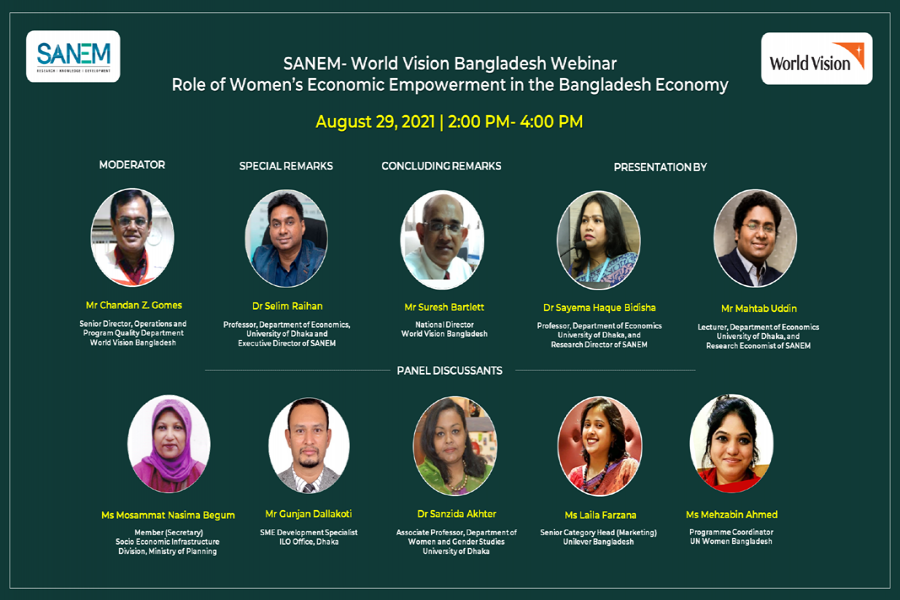Female employment has a significant and positive relationship with economic growth of Bangladesh in the long run, a study revealed on Sunday.
One per cent increase in female employment could effectively increase GDP growth by 0.31 per cent of the country, the latest study of SANEM and World Vision Bangladesh (WVB) revealed on the day.
The study said even if Bangladesh can increase female employment by only 10 percentage points, that might add as much as 3.1 per cent to its GDP.
If the 2021 figure of GDP is taken into consideration, such an increase would have resulted in an additional US $11.3 billion in the economy, said the study titled "Role of Women’s Economic Empowerment in Bangladesh Economy ".
The report was disclosed at a webinar jointly organised by the SANEM and WVB.
The study was presented by Dr Sayema Haque Bidisha, research director of SANEM and Mahtab Uddin, research economist of the same organisation.
The report said Bangladesh has received recognition for its commitment to promote gender equality including its success in achieving gender parity in school enrollment, reducing maternal mortality rates, etc.
Despite these achievements, women face several constraints in participating in the labour force with access to decent work, finance, productive and economic assets, and control over economic decision-making both within and outside their households being severely limited.
Overcoming these constraints and empowering women in the economy are crucial for the attainment of an inclusive and sustainable economic development process, said the study.
Chandan Z Gomes, senior director, Operations and Program Quality Department, WVB moderated while Mosammat Nasima Begum, member (secretary), Socioeconomic Infrastructure Division, Ministry of Planning, Prof Dr Selim Raihan, executive director, SANEM, Gunjan Dallakoti, SME development specialist of ILO office, Dhaka, Dr Sanzida Akhter, associate professor, Department of Women and Gender Studies, University of Dhaka, Laila Farzana, senior category head (Marketing), Unilever Bangladesh, and Mehzabin Ahmed, programme coordinator, UN Women Bangladesh also spoke, among others.


